Number of illegal migrants triples in Tatarstan
And the number of foreigners wishing to know the official language of the Russian Federation has almost halved

While the State Duma deputies are developing proposals for the prevention of crime among migrants, the head of the Investigative Committee, Alexander Bastrykin, demands a “purge” of illegal foreign workers and call to order those who hire them. Tatarstan also expressed concern about the situation in the migration sphere and stressed the importance of migrant workers settlement. The question is not idle: the number of illegally working foreigners is growing in the republic. This is confirmed by statistics provided to Realnoe Vremya in the Ministry of Internal Affairs of the Republic of Tatarstan. Read more about the migration situation, the employment of migrants and the problems of their assimilation in our material.
They work, but not officially employed
According to the Ministry of Internal Affairs of the Republic of Tatarstan, for 9 months of this year, 291,65 thousand foreign citizens were registered for migration at the place of stay in Tatarstan. If the rate of entry into the country remains at the same level, then by the end of December the final figure of 2022 — 324,9 thousand arrivals — will be outstripped by almost 20%.
The bulk of those entering when crossing the border declare that they intend to work in Russia — the number of such foreigners at the end of September 2023 amounted to 102,5 thousand people, whereas in 2022 62,8 thousand entered the republic for this purpose. The number of students entering for the purpose of study exceeds the final figures of last year by 6% (27 thousand from January to September 2023 against 25,5 thousand in 2022), business trips have almost doubled (13 thousand against 6,6 thousand). And the number of foreigners who designated the purpose of arrival as “private” has increased by 10% — and this is how non-working and minor family members of migrant workers formulate the purpose of stay.
At the same time, the total number of foreigners registered as temporary and permanent residents in Tatarstan, as of October 1, 2023, amounted to 16,5 thousand and by 11,5% exceeded the number recorded at the end of 2022 (14,8 thousand). If we compare the total number of those who entered Tatarstan with the declared purpose to work (102,5 thousand) with the number of foreign citizens and stateless persons registered in the republic (among whom not all officially work), then the question arises: where did at least 84% of those who entered for this purpose in 2023 go? And there is no reason to say that they get citizenship and fall out of the statistics: “workers” arrive in Tatarstan by tens of thousands every year, and only 200-500 people become citizens of Russia in a year.
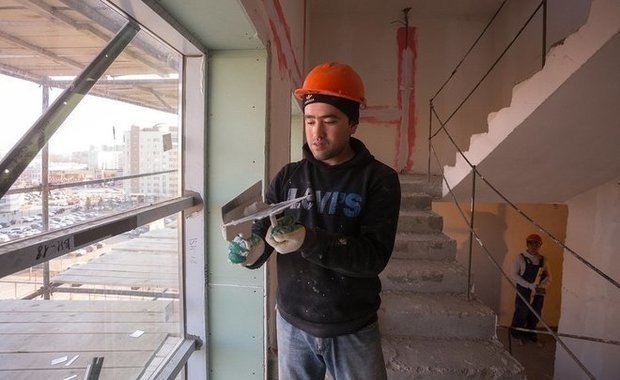
“One of the main goals of the arrival of foreign citizens is the possibility of employment," the Ministry of Internal Affairs of the Republic of Tatarstan states.
However, employers can attract foreigners to their enterprises only within the established quota, which is established by the Ministry of Labour and Social Protection at the request of employers. For 9 months of 2023, only 57 such invitations from employers to enter employees were issued (for 2022 — 344 invitations). Besides, 148 quota places were received in 2023 by highly qualified specialists (in 2022 — 825).
In addition to quotas, 550 foreigners received work permits in 2023 (1,578 in 2022). Another 42,4 thousand foreigners have a patent (in 2022 — 41,3 thousand).
Comparing the above data, one cannot help but wonder: where are 59,5 thousand more foreigners who entered Tatarstan in 2023 alone working? Have they left the republic or are they working illegally? And if they stay in Tatarstan, what exactly are they doing?
Every second — to the construction site, every ninth — to the catering
The cross section provided by the Ministry of Internal Affairs of the Republic of Tatarstan for those migrants who legally work is also interesting. If a year ago, mainly qualified Turkish (1,112 permits), Chinese (202 permits) and Indian (53 permits) specialists received work permits in the republic, then in 2023 the number of workers from Turkey and China decreased to 176 and 136, respectively, and workers from Turkmenistan came in third place (77 permits).
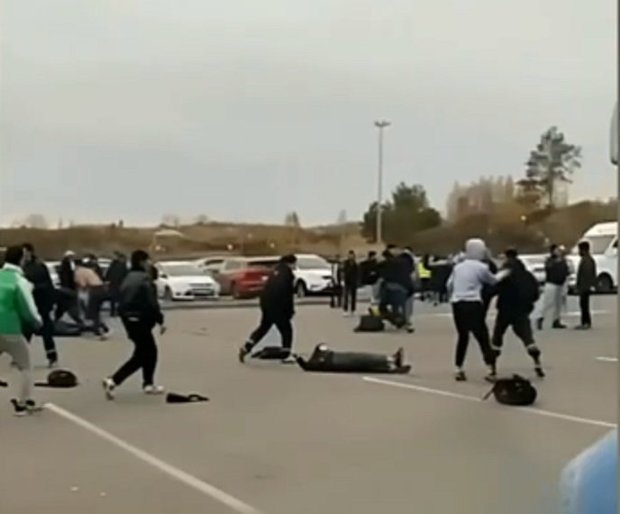
At the same time, half of them went to work on construction sites in 2023 (274 people, 49,8% of the total number of permits), and another fifth (107 people, 19,5%) went to manufacturing. 48 qualified foreign specialists (8,7%) were embraced by the catering industry, almost the same number went into the sphere of communal and social services, 10 people went into the field of education. And only one foreign specialist was received by healthcare and science each.
History is silent about which group the migrants belong to who started a mass brawl at the Ozon warehouse near Zelenodolsk on October 23, 2023.
Crime is falling, the number of violators of the law is growing
The consequences of the growing migration flow, the bulk of which are low-skilled workers, were voiced by the head of the Investigative Committee of Russia, Alexander Bastrykin: in the first half of 2023 alone, the number of serious and especially serious crimes committed by migrants increased by a third compared to the same period in 2022. In total, from January to June 2023, migrants in Russia committed 22 thousand crimes, which is by 6,3% more than last year. And most of these crimes, about 18,5 thousand, were committed by CIS citizens.
Tatarstan, as it turned out, is out of step with the whole of Russia in this regard. Natalia Ryzhikova, the deputy head of the Migration Department of the Ministry of Internal Affairs of the Republic of Tatarstan, has recently stated that in 9 months of 2023, migrants committed 25% fewer crimes in the region than in the same period of 2022 — “only” 354.
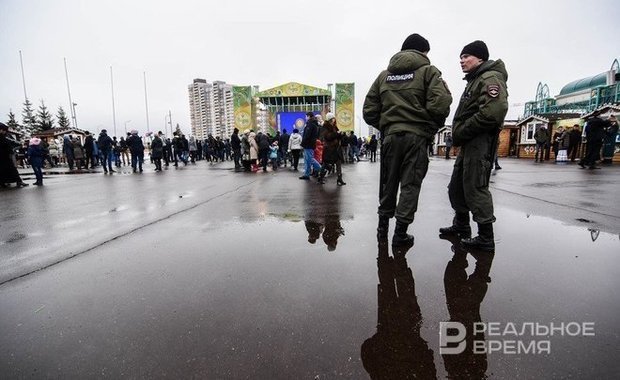
However, against the background of the general benevolent tendency to reduce crime among newcomers in Tatarstan, the statistics of violations of migration legislation provided to Realnoe Vremya of the Ministry of Internal Affairs of the Republic of Tatarstan looks like a dissonance:
"602 administrative protocols were drawn up in January-September 2023 for illegal employment by a foreign citizen or a stateless person in relation to violators, and 211 — in 2022. For malicious violation of the regime of stay and conditions of participation in labor relations, court decisions on administrative expulsion from the Russian Federation in January-September 2023 were taken against 2,173 foreign citizens, in 2022 — against 1,137. That is, the number of detected and suppressed cases of illegal stay and employment by foreigners in Tatarstan for 9 months of 2023 was 2 times higher than in 2022.”
Don't understand, but pass the exam
The increase in crime among migrants has caused protests across Russia. In Tyumen, a few days ago, they announced the collection of signatures for banning migrants from entering Russia and granting them citizenship. Residents of many regions call one of the reasons for the rejection of visitors their unwillingness to assimilate, learn the official language of our country and comply with the norms of behaviour in society accepted in the regions.
The reluctance of migrants to assimilate is also evident in our region. To obtain citizenship of the Russian Federation and a work permit in Russia, foreigners must pass an exam for knowledge of the Russian language.
According to the Ministry of Internal Affairs of the Republic of Tatarstan, for 9 months of 2023, the Commission for the recognition of a foreign citizen or stateless person as a native speaker of the Russian language considered only 447 applications and 329 people were recognised as native speakers. In 2022, 771 such applications were submitted (515 people were recognised as native speakers). If we proceed from the “weighted average-average monthly” data, we can conclude that in 2023 the number of migrants wishing to speak the language of the country that accepted them decreased by almost 20%.
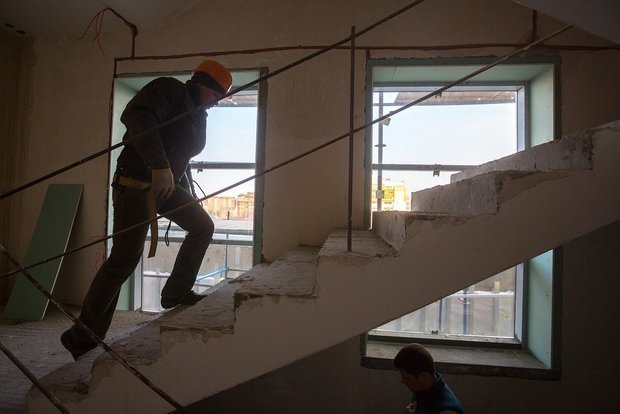
At the same time, information has been recently published that casts doubt on the results of the exam by those who were still recognised as a native speaker of the Russian language, including in Tatarstan. Rosobrnadzor conducted an inspection and revealed violations in all 13 Russian universities where the Russian language exam is held, the successful completion of which is a prerequisite for obtaining Russian citizenship and a work permit, and the Prosecutor General's Office has begun an inspection in this regard.
The Kazan Federal University is also included in the list of those who have failed, and the quality of exam admission can be judged by this fact. When a few years ago the author of this article offered to make a report from such exam, the Federal Migration Service categorically refused to allow the journalist into the audience and offered to “tell how the exam was held” instead.
Will we follow the path of post-war Germany?
Having reported that since the beginning of 2023 alone, the population of Moscow and the Moscow region has increased by almost 2,5 million people due to migrants, Alexander Bastrykin noted that “not every one of them is needed by the economy of our country”. In the Ulyanovsk region, recently it has been estimated that a migrant family costs the budget 700 thousand — 2,5 million rubles, questioning the existence of at least some economic benefit from the use of their labour.
Realnoe Vremya asked the question whether migrants are needed for the economy of Russia and Tatarstan to the deputy of the State Duma from Tatarstan, member of the Committee on Budget and Taxes, Ayrat Farrakhov.
“We are in a very difficult demographic pit and we are still just descending into it, we have not reached the bottom," he cited the main argument in favour of increasing the population in this way. “At the same time, the population of Russia is aging at a faster pace than it happens in other countries, and the country needs workers. The most important problem of maintaining economic growth today is not investment, but workers. We cannot find employees from among our own citizens for low-paid positions, so in any case we need to form a balance so that we can pursue a policy of attracting migrants to these positions.”
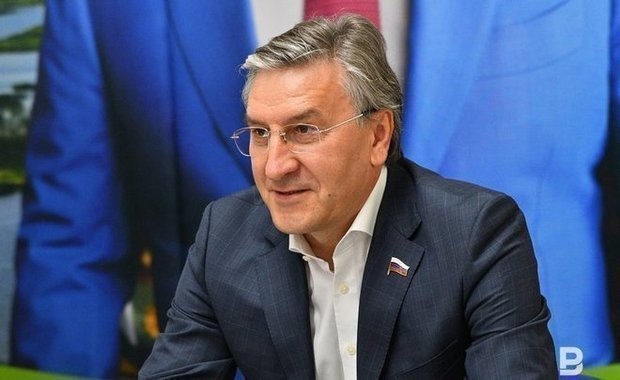
Ayrat Farrakhov did not focus on the part of the migrants who create criminal problems, work in the shadow part of the economy, enjoy social support without contributing to the budget, and do not seek to assimilate, but, on the contrary, create closed enclaves in Russian cities. He expressed the belief that it is impossible to say that there is an objective increase in crime among migrants — the reason for the conviction of the population in this, according to the parliamentarian, is that “just every such case becomes extremely resonant”. He recalled that no matter how the Germans felt about it after 1945, but “after the Great Patriotic War, many of the largest cities in Germany were restored only thanks to the cheap labour of Turkish builders”.
When asked what he sees Russia's migration policy in the near future, Ayrat Farrakhov replied:
“If the ruble continues to fall in price, then, of course, we will observe the outflow of foreign workers. And as a result, there will be very big problems with the construction site, with drivers, and so on. Large employers will certainly feel it. Therefore, I think it would be right to maintain the balance necessary to support the economy and, at the same time, set conditions for migrants, to some extent help them learn the language and assimilate. And with those who do not want to assimilate — criminals, scammers, it is necessary to part. The services that are responsible for this should work here.”